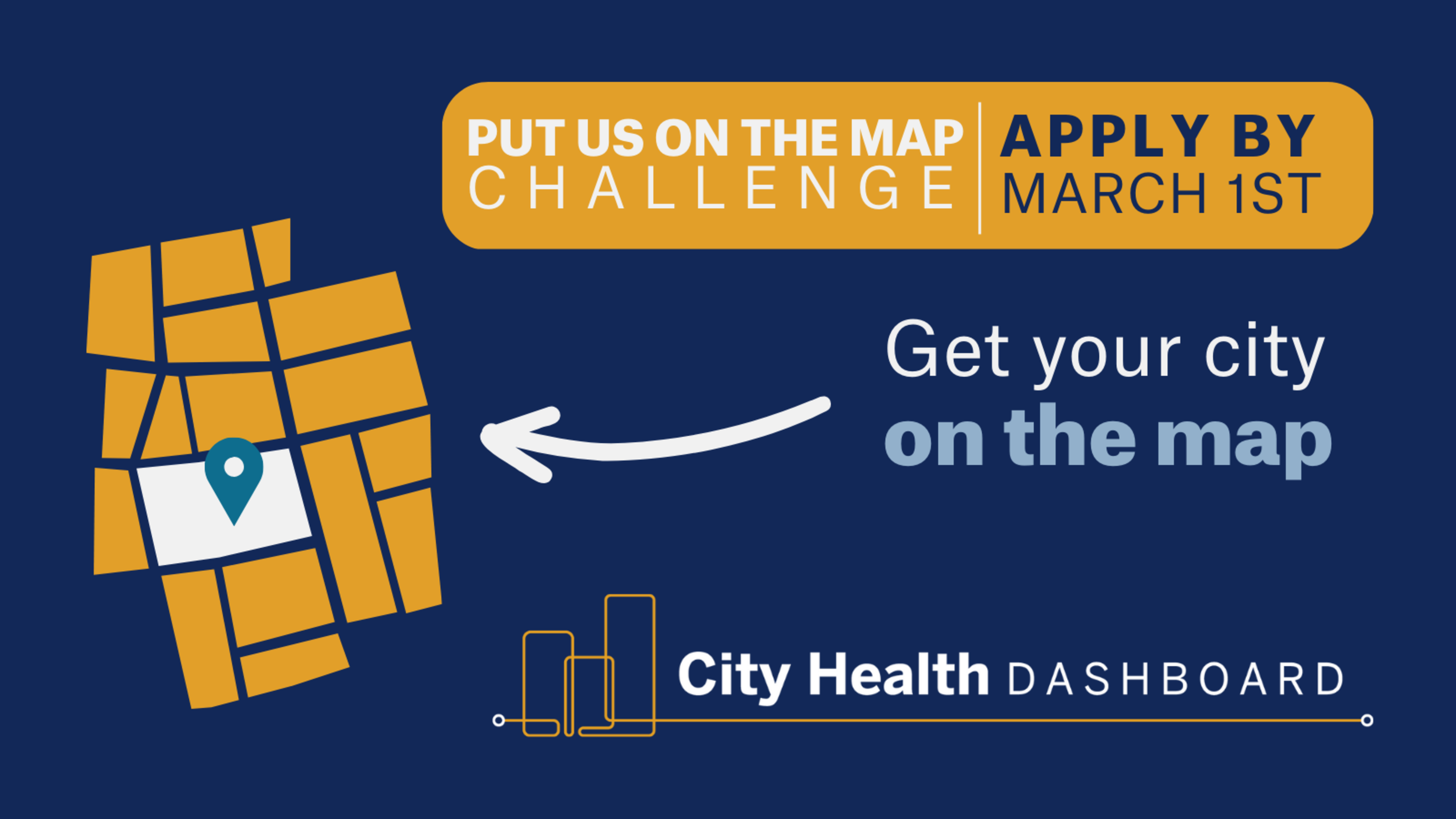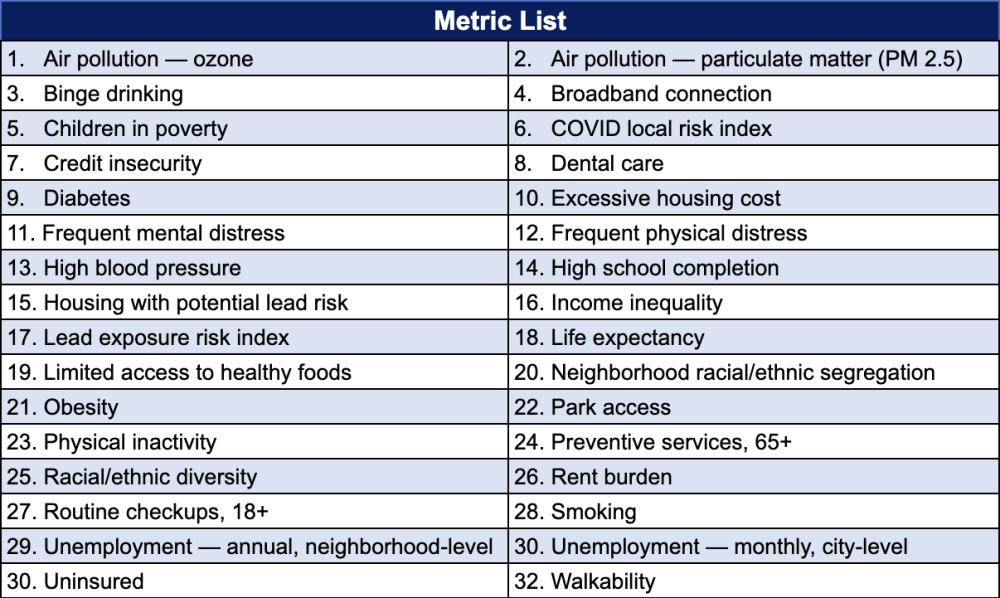Get Your City on the Map
Feb. 1, 2023
Caleigh Paster
For communities across the country, data has the power to drive change. From shining a light on successes to calling out challenges, data is a starting point to creating a healthier future. However, for city leaders and residents, local data on health and its drivers have, historically, been difficult to come by. The City Health Dashboard is on a mission to change this. Since its inception in 2018, the Dashboard has strived to serve as a reliable and accurate source of health data.
Last year, the Dashboard launched the inaugural Put Us on the Map challenge, a new opportunity for smaller cities with populations between 3,000 and 50,000 to apply to get their city on the map. Through this initiative, we added 29 cities from across the country to the Dashboard in the summer of 2022.
Stay tuned to hear how these cities have used data to make evidence-based decisions to tackle local health issues.
Second Annual Put Us on the Map Challenge!
Building off of last year’s successes, we are excited to announce a second Put Us on the Map challenge. For cities with populations less than 50,000 people, this is an opportunity to get free access to over 30 metrics on health, its drivers, and health equity on the Dashboard. This is not a grant, but rather a chance to receive our team’s unique technical services and expertise, providing easier data access to help on the journey towards a healthier tomorrow for you and your community.

The Dashboard is now accepting applications for the Put Us on the Map Challenge from cities, towns, villages, boroughs, and local organizations with populations between 3,000 to 50,000 are invited apply. The application period will close on Wednesday, March 1st at 5pm EST.
Want to apply? We’ve outlined the application process below, from eligibility and selection criteria to a detailed timeline of the 2023 Challenge.
Who can apply?
Representatives from small cities, including individuals or partnerships, can submit applications. While the process is short and relatively simple, applicants should note selection criteria and eligibility before applying.
U.S. municipalities, including cities, towns, townships, boroughs, and villages with populations 3,000 to 50,000 can apply.
Individuals or teams represented by community members, policymakers, city government leaders and staff, students/student groups, teachers, and others are encouraged to apply. Partnerships showing existing cross-sector collaboration are a bonus.
If the applicant is not from city government, please include a letter of support from a partner within a city department. A template letter is provided here.
Multiple requests for the same city will not improve your chances of being selected. It’s preferred that different groups from the same city demonstrate that they are working together and how the data will help multiple stakeholders.
If you are eligible to apply based on the above criteria, this last requirement is the most important:

What are the benefits of joining the Dashboard?
Access to your city’s data on the City Health Dashboard, initially including metrics provided in the table below
Cities will be able to use all the features of the Dashboard, including comparing to other cities, Take Action, and more.
Support from the City Health Dashboard team to help you understand and leverage the data in your work.
A featured blog or Impact Story on the Dashboard, highlighting how health data makes a difference in your city.
Explore examples from our blog and Impact Stories to learn more.
The Dashboard strives to supply as many metrics as possible for our cities. However, many communities with a population less than 50,000 have limited data availability. Therefore, while not all Dashboard metrics may be available for smaller cities, we can guarantee a subset of the Dashboard’s metrics will be available for the selected cities at the time of the summer launch. Once a city has been selected for the Dashboard they will be included in site updates and new metric launches. For this year’s challenge, we will be able to present the most recent year of data for the following metrics for all selected cities:

Challenge Timeline
Applications will close on Wednesday, March 1st, 2023, 5pm EST.
Winners of the Challenge will be announced this spring, with cities launching on the City Health Dashboard in summer 2023. A special Virtual Office Hours for selected cities will be held shortly after launch to support navigating the site and its features, as well as putting the data into action in small cities. The Dashboard team will remain available for cities as they use the data and resources to create change in their communities.
Our goal is to empower local leaders from cities of all sizes to develop solutions to improve health and equity. Don’t miss out on gaining valuable public access to neighborhood-level data on health and its drivers for your community. Apply now to put your city on the map.
Please reach out to Samantha Breslin, [email protected], if you have any questions.